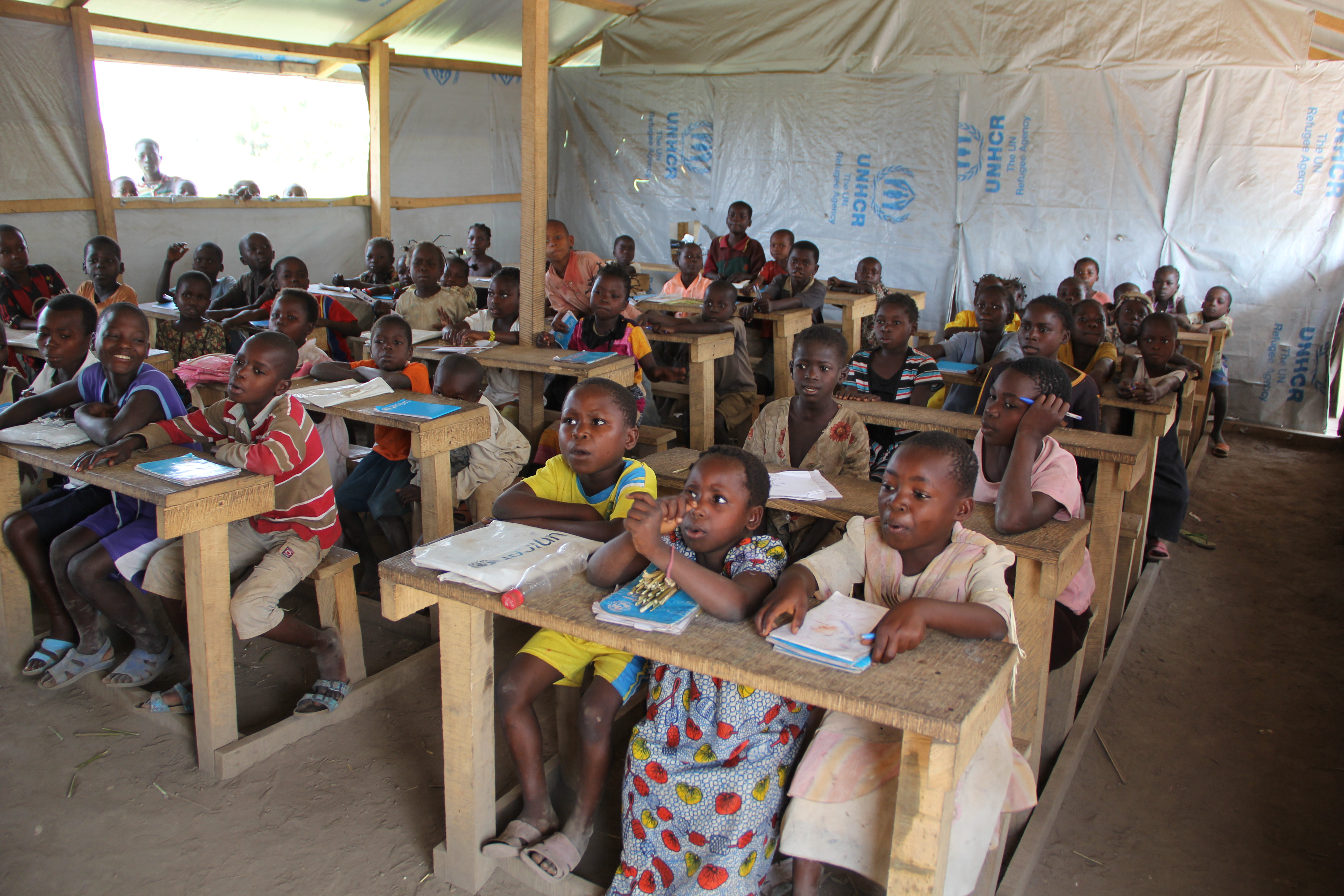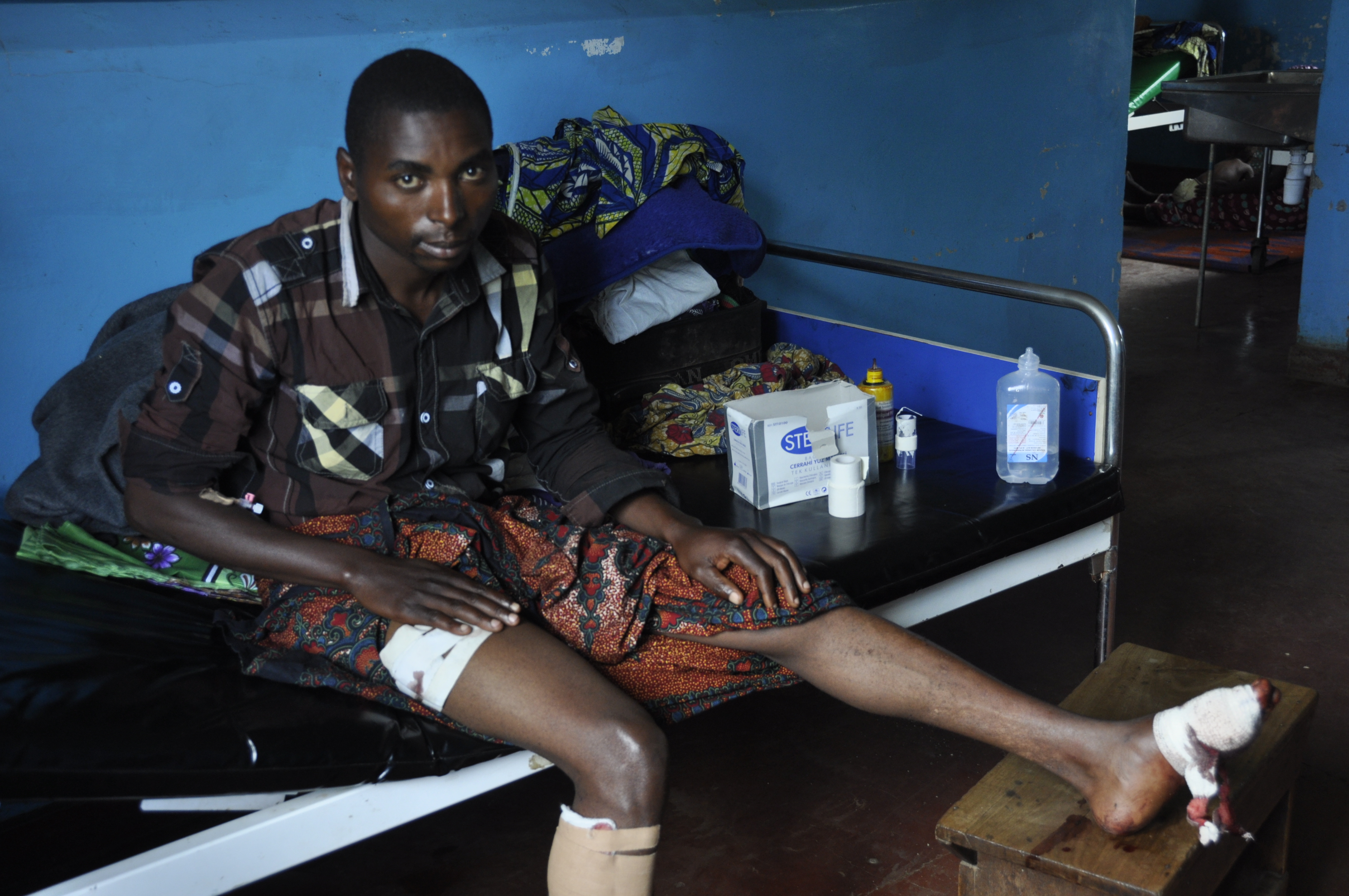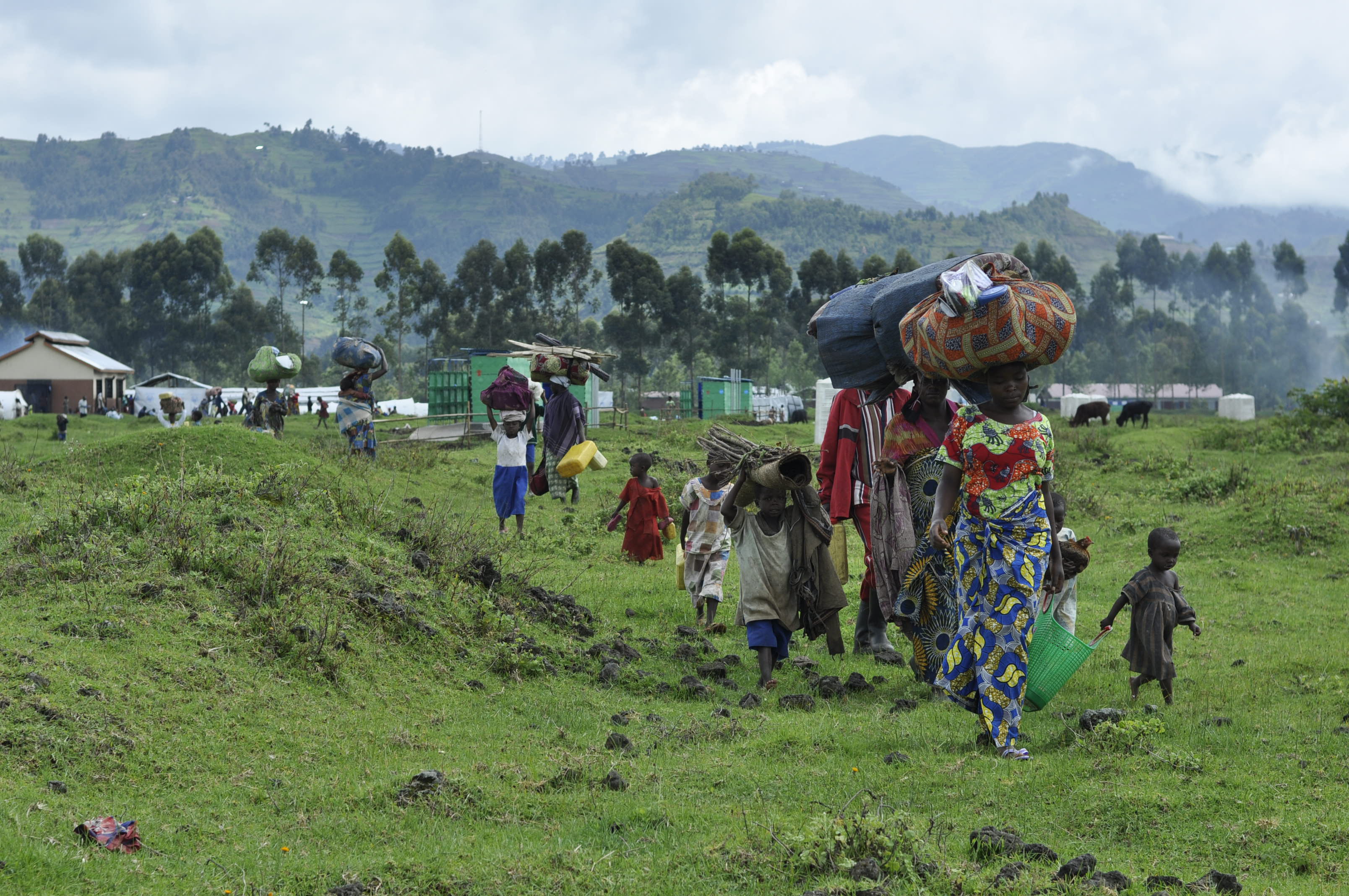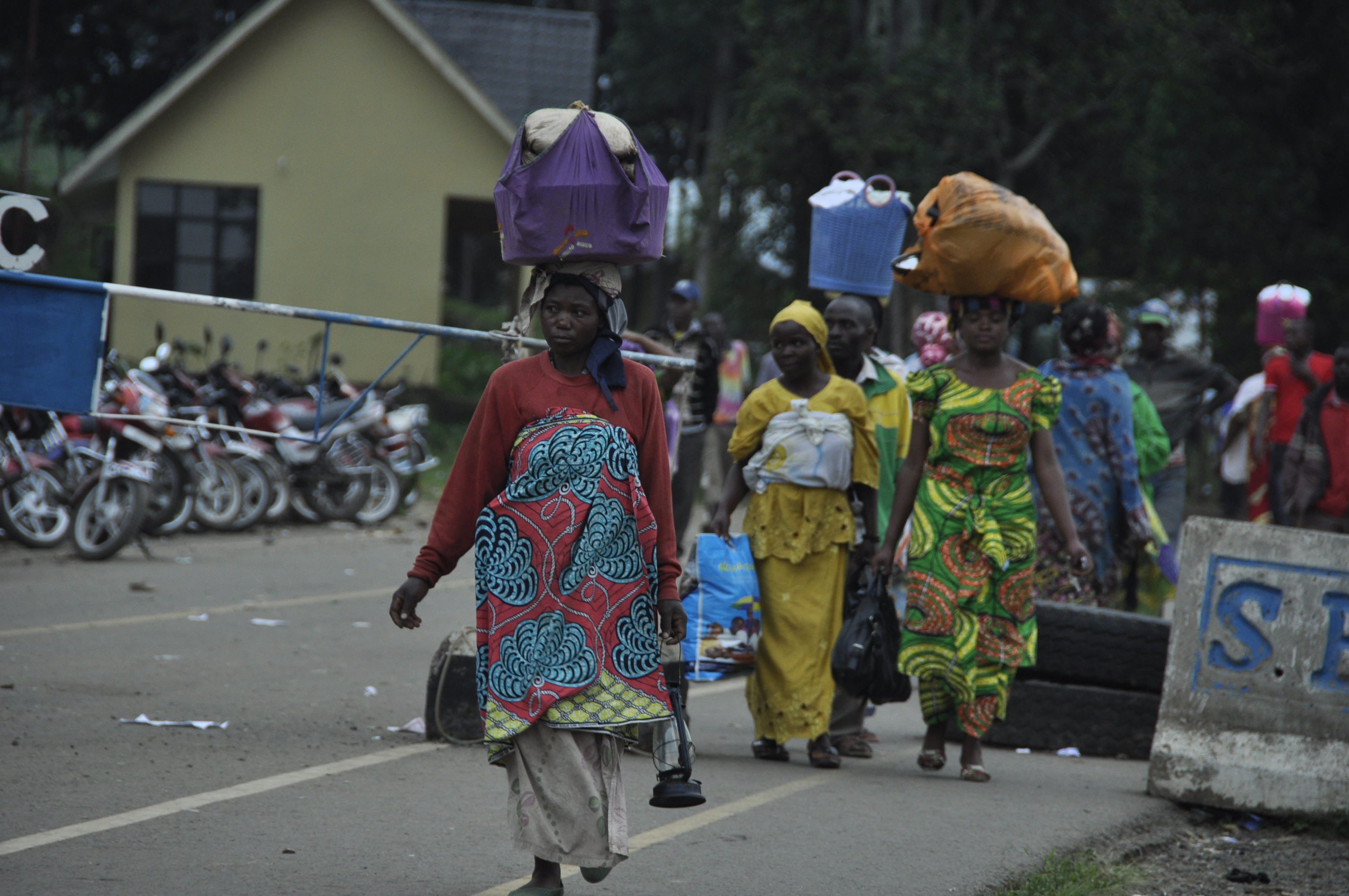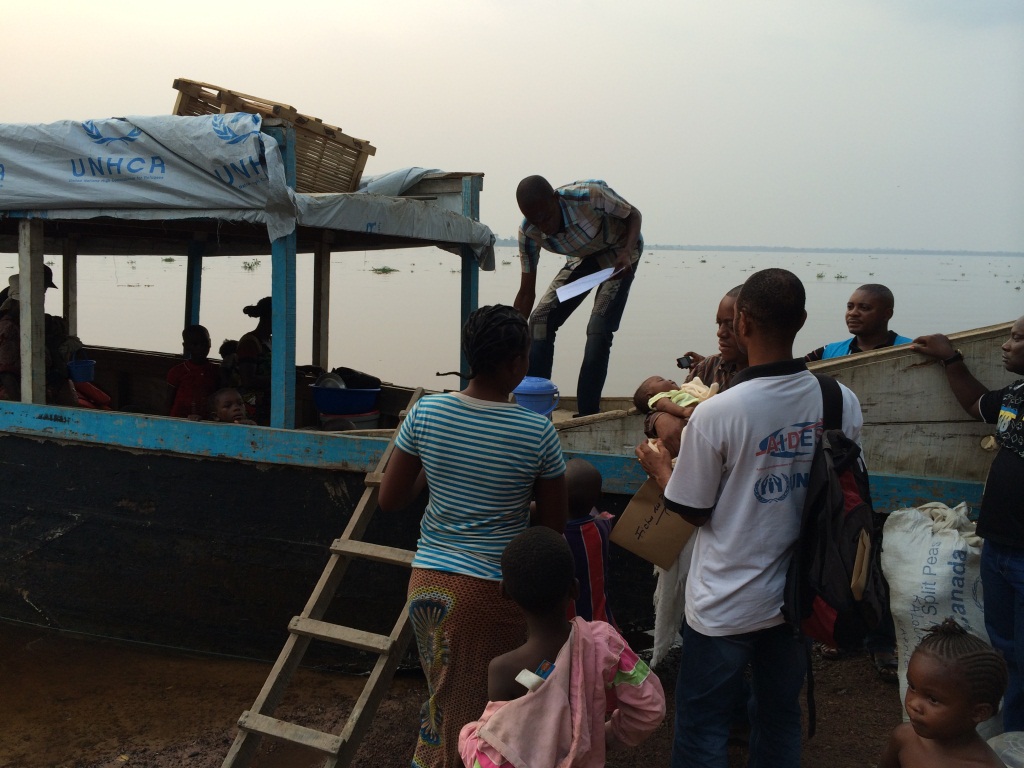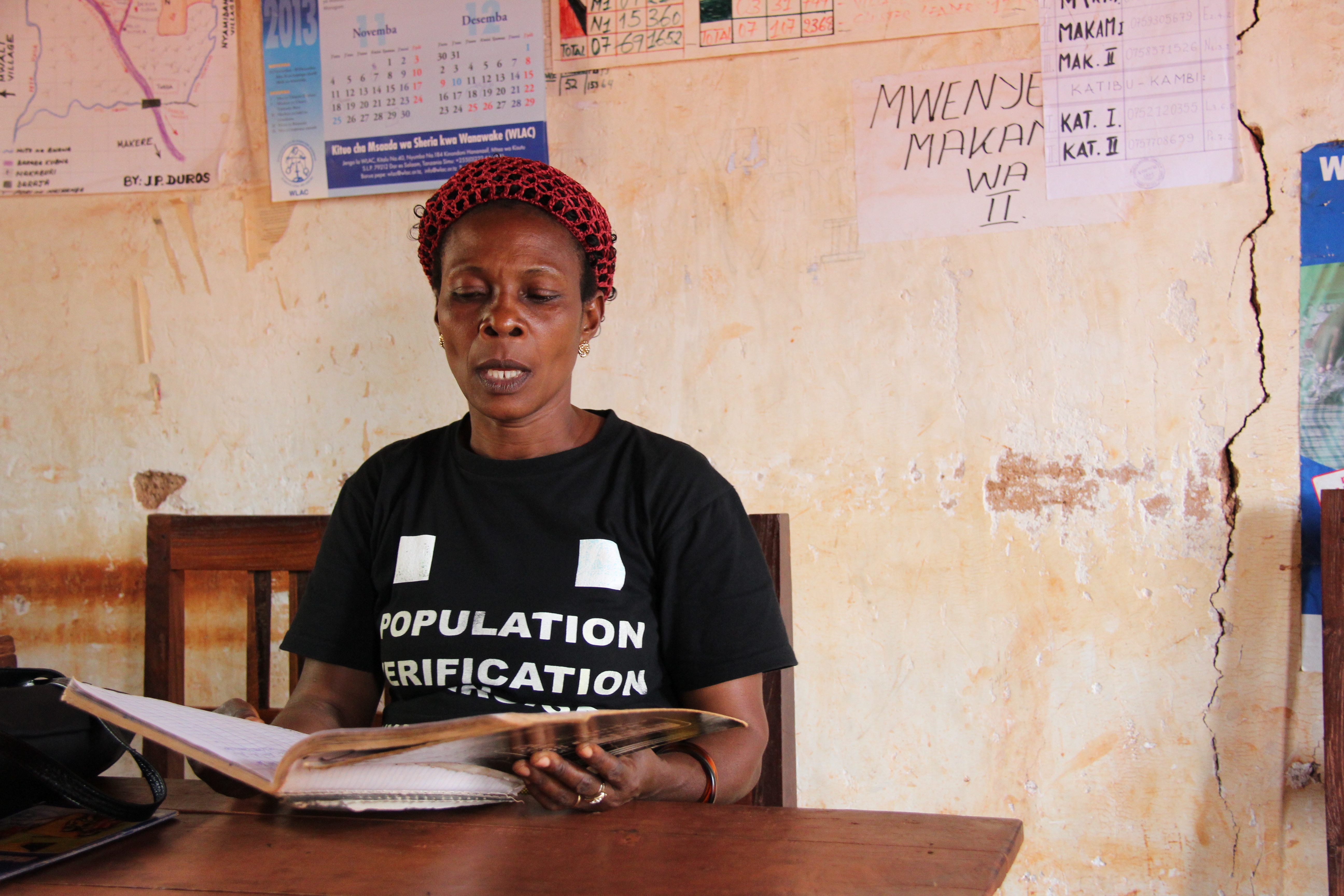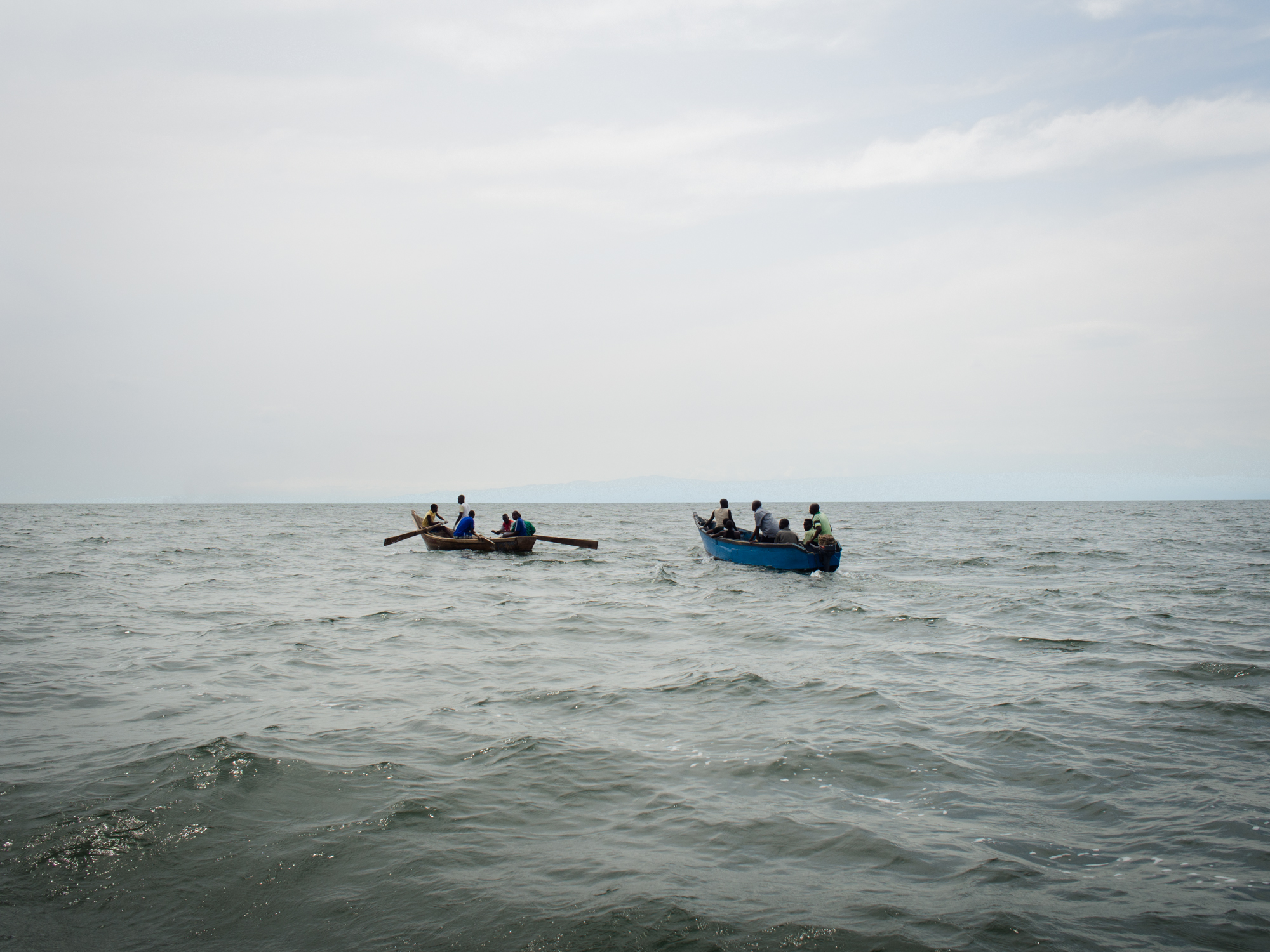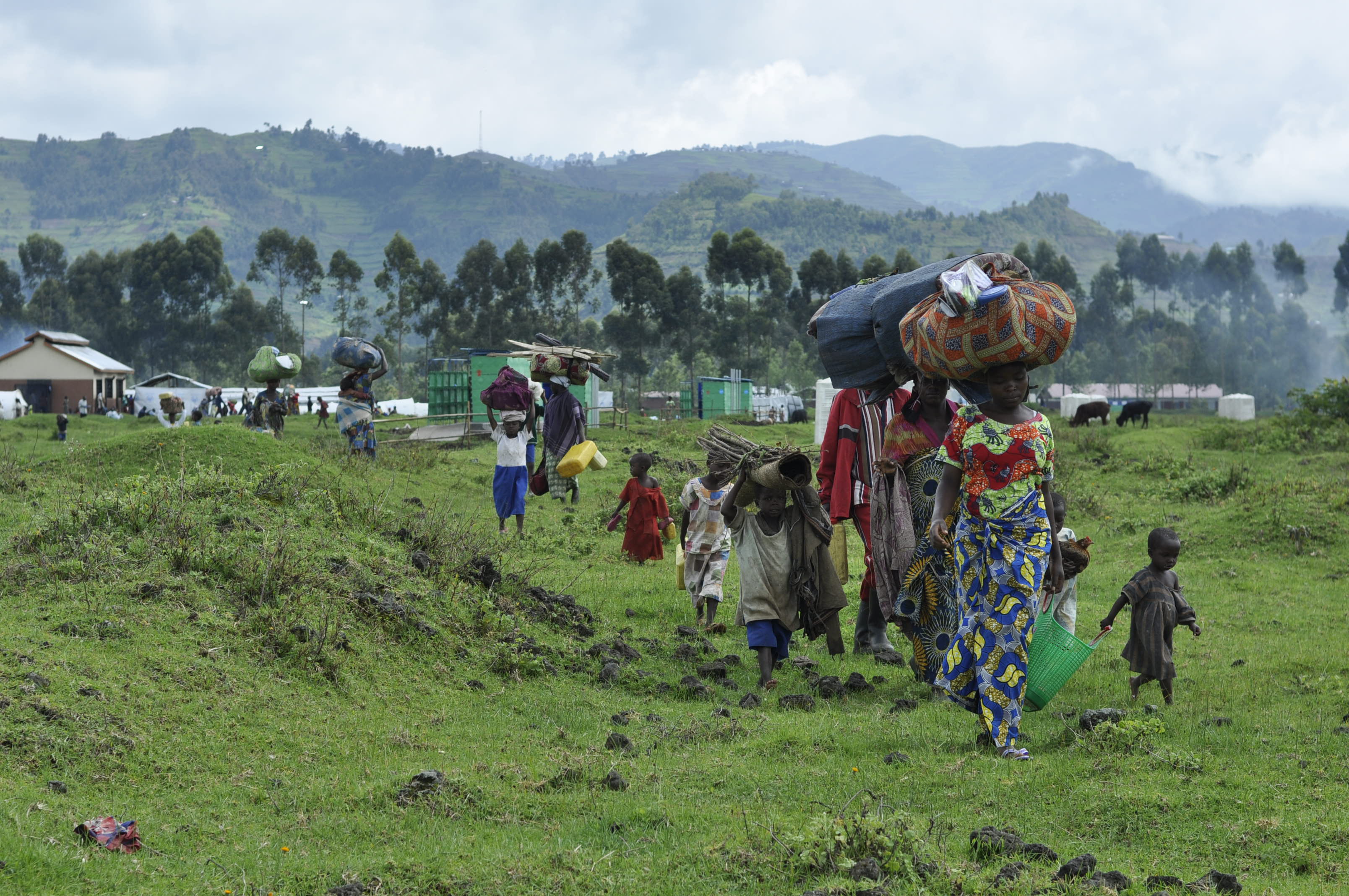Young Congolese men fear forced recruitment, flee to Uganda
Young Congolese men fear forced recruitment, flee to Uganda

NYAKABANDE TRANSIT CENTRE, Uganda, December 24 (UNHCR) - Marc,* Philippe* and Georges* are all young, fit and male - ideal material for forced military recruitment. That's why the 20-year-olds fled their homes, like thousands of other young men living in fear of being forced to fight in eastern Democratic of the Congo's (DRC) endless conflict.
Since April, North Kivu province has been buffeted by waves of fighting between government troops and rebel fighters from the M23 movement. The situation has been exacerbated by general lawlessness and clashes between other armed groups, including Mai Mai militia.
Young men have become a valuable resource for the rival sides, who forcibly recruit from among the local population. Many of those arriving in Nyakabande Transit Centre after crossing the border into Uganda, including teenagers, say they fled from fear of being press-ganged. It's a matter of concern to UNHCR.
During the M23 advance on the provincial capital of Goma, which the rebels captured on November 20 and held for 10 days, news reports said that young men and boys were largely absent in the long lines of civilians escaping the fighting. And some families sent their sons on ahead to safety or hid them.
When UNHCR caught up with him in Nyakabande Transit Centre, Marc was speaking by phone to his neighbours across the border in North Kivu's Rutshuru territory and trying to get news about his brother and other relatives - his parents were killed in fighting two years ago.
The young man had sought safety in Uganda earlier in the year, after he heard at school that one of the rebel groups was planning to abduct the male students and force them to join their force. "The headmaster told everyone to flee," he said.
Marc decided to head for Uganda. "I was scared and fled. I did not even go home," he said, adding that he made his way by motorcycle to Bunagana, which straddles the border between North Kivu and Uganda's Kisoro district.
"People in Congo took my money [he was carrying US$10] because they said that people should not cross into Uganda with money . . . I walked to the transit centre [some 20 kilometres from Bunagana]," he said.
Philippe faced the same situation. He claimed the groups looking for recruits came through the local chiefs. "They register all young people. They then call a meeting, like a town gathering, and force the youth present to join their group," explained Philippe, who said that when such a meeting was called he set off at speed for the border instead.
Georges fled at the same time. "The chief was my friend and told me that the meeting was intended for recruitment . . . He told me that I had been registered and that I better flee," he explained.
It took him a week to make his way to the border from his home, because he kept hiding and getting lost. "My fear was forced recruitment. I was walking, sleeping in the bush and trying to hide. I was begging and eating sugarcane," Georges recalled. He said some of his friends had been taken away, and he feared for them.
UNHCR staff at Nyakabande say many other young men have been arriving at the centre in recent months, citing fear of being sent to fight on the front lines. In October, an average of 115 people arrived daily at Nyakabande and of them about 7-8 said they were fleeing forced recruitment.
The number fell in November, but the current stand-off between government troops back in Goma and the M23 forces not far away, could escalate the search for young recruits. The two sides are engaged in peace talks in the Ugandan capital, Kampala, but the outcome is far from certain and people remain nervous in North Kivu.
The young men UNHCR talked to in Nyakabande said they felt safe in the transit centre, where they are interviewed by UNHCR protection staff and have access to psychosocial counselling. But they were lonely and missed their families and homes. Some hoped their relatives would come and join them.
"I want to be reunited with my brother. He is the only one I have," said Marc, who had heard that his sibling had crossed into Uganda and was staying in the Rwamwanja settlement some 350 kilometres to the north of here.
Marc, Philippe, Georges and the other young men all agreed on one thing: they did not want to go back to the Democratic Republic of the Congo, where insecurity remains a problem despite a national peace accord in 2003. Now they want to pursue their studies and start a new life.
"My dream is to go back to school," Philippe said. This was echoed by Marc, who told UNHCR: "If I have the opportunity, I would like to go to school in the settlement [Rwamwanja] and continue my education."
* Names changed for protection reasons.
By Céline Schmitt in Nyakabande Transit Centre, Uganda


